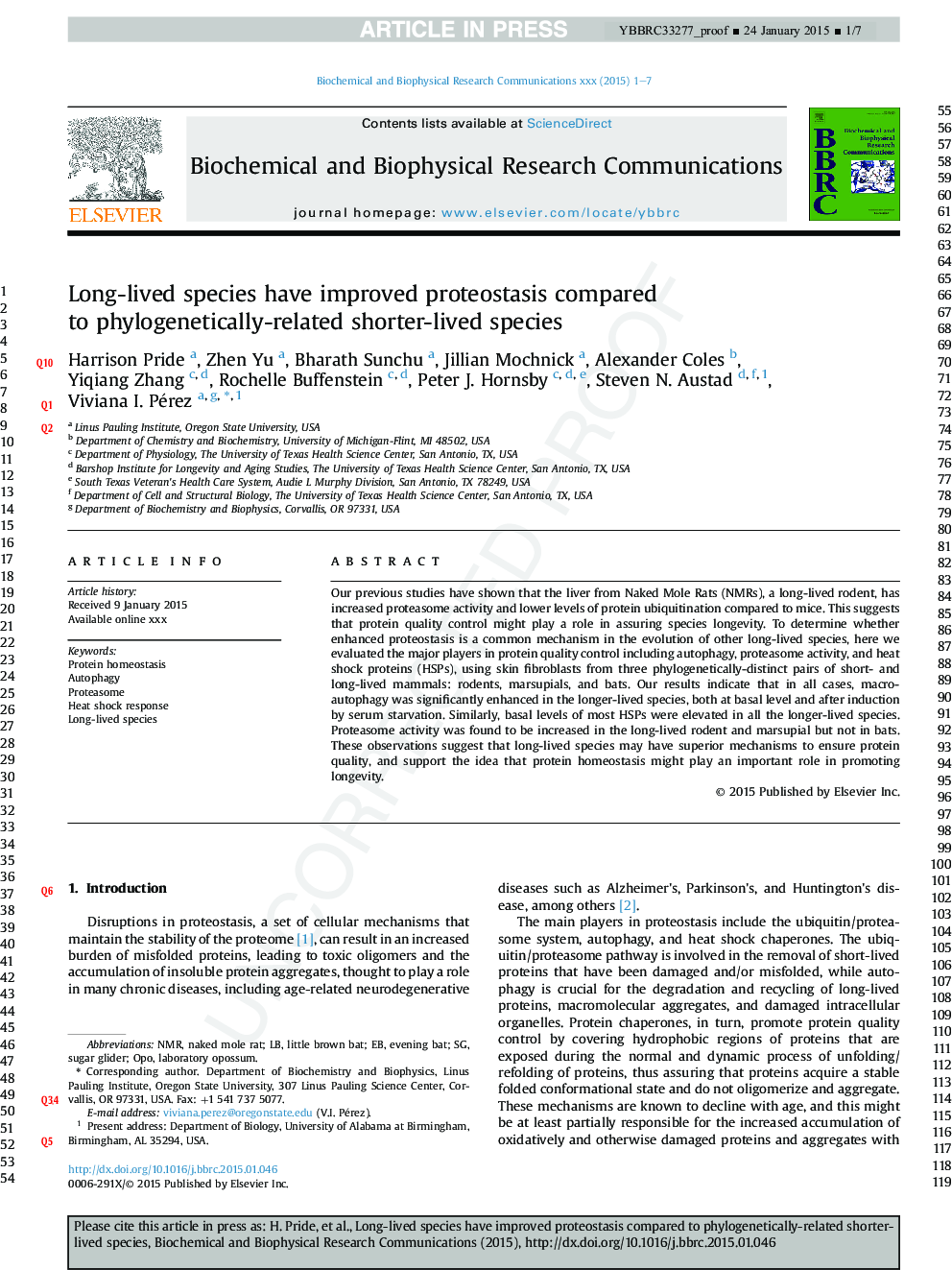| کد مقاله | کد نشریه | سال انتشار | مقاله انگلیسی | نسخه تمام متن |
|---|---|---|---|---|
| 10752576 | 1050328 | 2015 | 7 صفحه PDF | دانلود رایگان |
عنوان انگلیسی مقاله ISI
Long-lived species have improved proteostasis compared to phylogenetically-related shorter-lived species
دانلود مقاله + سفارش ترجمه
دانلود مقاله ISI انگلیسی
رایگان برای ایرانیان
کلمات کلیدی
موضوعات مرتبط
علوم زیستی و بیوفناوری
بیوشیمی، ژنتیک و زیست شناسی مولکولی
زیست شیمی
پیش نمایش صفحه اول مقاله

چکیده انگلیسی
Our previous studies have shown that the liver from Naked Mole Rats (NMRs), a long-lived rodent, has increased proteasome activity and lower levels of protein ubiquitination compared to mice. This suggests that protein quality control might play a role in assuring species longevity. To determine whether enhanced proteostasis is a common mechanism in the evolution of other long-lived species, here we evaluated the major players in protein quality control including autophagy, proteasome activity, and heat shock proteins (HSPs), using skin fibroblasts from three phylogenetically-distinct pairs of short- and long-lived mammals: rodents, marsupials, and bats. Our results indicate that in all cases, macroautophagy was significantly enhanced in the longer-lived species, both at basal level and after induction by serum starvation. Similarly, basal levels of most HSPs were elevated in all the longer-lived species. Proteasome activity was found to be increased in the long-lived rodent and marsupial but not in bats. These observations suggest that long-lived species may have superior mechanisms to ensure protein quality, and support the idea that protein homeostasis might play an important role in promoting longevity.
ناشر
Database: Elsevier - ScienceDirect (ساینس دایرکت)
Journal: Biochemical and Biophysical Research Communications - Volume 457, Issue 4, 20 February 2015, Pages 669-675
Journal: Biochemical and Biophysical Research Communications - Volume 457, Issue 4, 20 February 2015, Pages 669-675
نویسندگان
Harrison Pride, Zhen Yu, Bharath Sunchu, Jillian Mochnick, Alexander Coles, Yiqiang Zhang, Rochelle Buffenstein, Peter J. Hornsby, Steven N. Austad, Viviana I. Pérez,